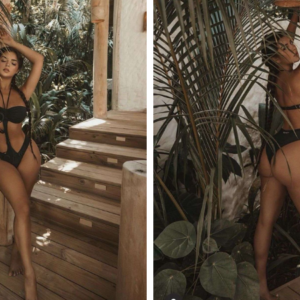ven for the smartest and most talented actors, there are far more ways for a movie to fall short than succeed, so it’s a rare moment when project after project clicks seamlessly into place. Right now, Scarlett Johansson is clearly having such a moment. Earlier in the year, she played a pivotal role in what has become the highest-grossing movie of all time worldwide, Avengers: Endgame, and filming has just wrapped for the standalone movie about her character, Black Widow, scheduled for release in May. Meanwhile, her performances in two recent, smaller-scale movies, the searing relationship drama Marriage Story and the extraordinary, off-kilter Nazi-era comedy Jojo Rabbit, are drawing sustained acclaim; for the former she is widely considered a contender for best actress.
All of which seems to leave Johansson quietly proud, but also uneasy.
“I worked really hard for a really long time,” she says, semi-supine on a sofa in a New York pH๏τo studio at the end of another long day. “So maybe this is the result of that.” There’s a carefulness about Johansson as she says this, not the kind that implies insecurity or a lack of self-belief, more that she is used to being someone for whom it is almost always too soon to really celebrate. “I definitely am the type of person who’s always waiting for the other shoe to drop,” she reflects. “But I’m learning to change that habit.”
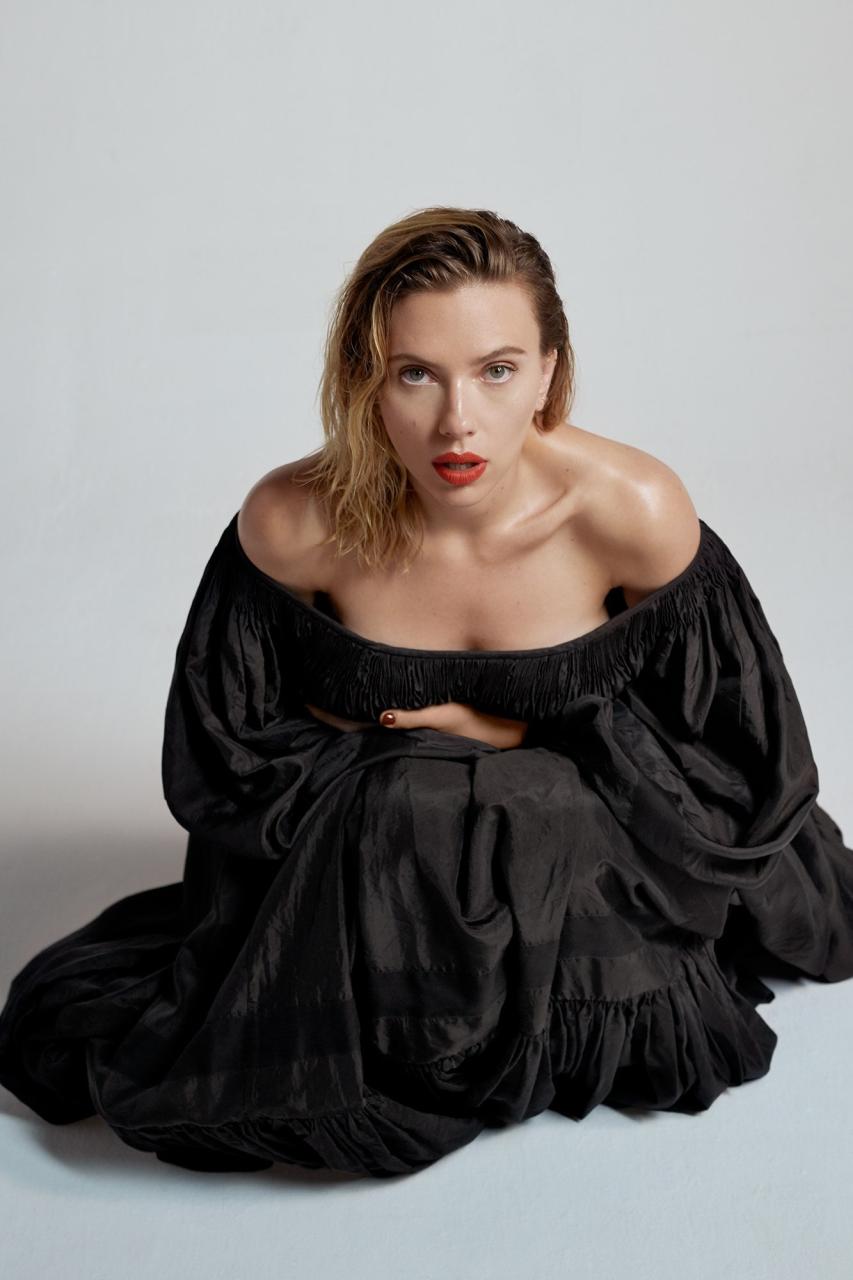
Johansson is 35, though, as she points out, “I’ve been working for, I don’t know, 25 years or something.” She was 9 when she filmed her first movie role, in North; by 13 she was at the center of The Horse Whisperer; at 18 a breakthrough role in Lost in Translation launched her adult career. Not everything has always come easily: “Over that time, my feelings towards work, it’s ebbed and flowed. At times I felt like I couldn’t get anything that was substantial or that felt challenging to me.”
Recently, that has been less of a problem, something she relates, at least in part, to the change of priorities that came with becoming a mother. (Her daughter, Rose, is five.) “Now I have a child…not that I’m not career-driven now, but I guess I’ve been driven by other sides of my career in the past,” she says. “Maybe I was more concerned with a certain kind of visibility or exposure. And now I’m not as worried about that stuff. I’m in a good phase in my career where I’m able to actually wait for stuff that’s right.”
Johansson says that it was obvious that Jojo Rabbit was one of these from the moment she read what director Taika Waiтιтi had written. “The script was fantastic. It was a gem. I mean: perfect. Obviously I’ve read plenty of scripts over these 20-whatever years, and when something is that тιԍнт and surprising and touching and unusual…I was, like, ‘This is really special.’ And I felt Taika was capable of making it the way that it deserved to be made.”
Likewise, it was immediately obvious how she should play her character, a mother caught between the Nazi-youth mania possessing her young son and the dictates of her conscience. “Rosie just came off the page,” says Johansson. “In my mind she was this warm, cozy character, this lovable safe place. I wanted her to feel like a safe place, a loving and vivacious person in the middle of her life, so that you really felt the profound loss when she’s not there. I fell in love with her. I just had to say the words because I was in love with her.”
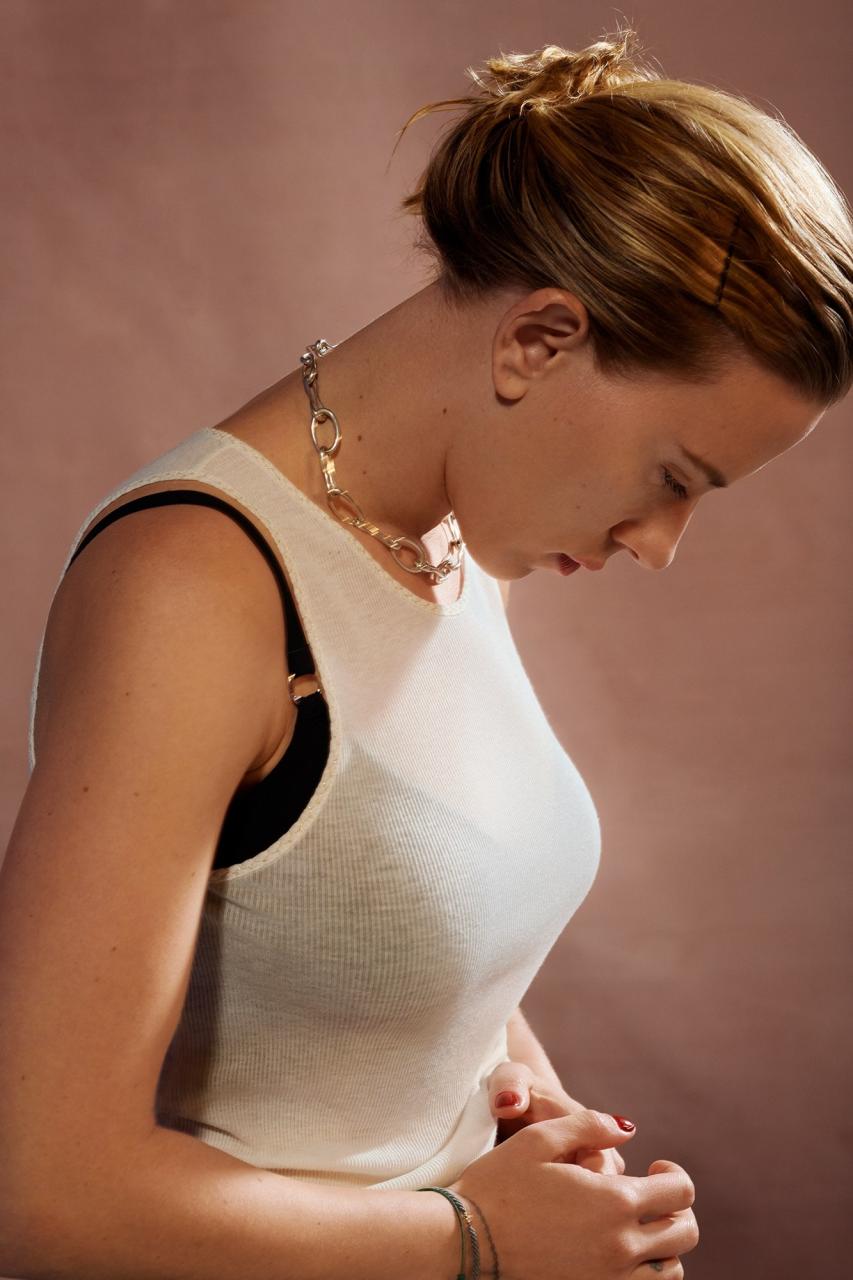 That opportunity directly followed her mesmerizing turn as one half of a couple disintegrating into divorce in Marriage Story. Johansson had nearly worked with that movie’s writer-director, Noah Baumbach, in her early 20s. When that earlier project fell through, she says that she felt he’d probably never call her again. But a few years ago, he asked to meet. Baumbach explained to her that he was writing a story about a divorce, and Johansson explained to him that she was going through one. (This was from her second husband, Romain Dauriac.)
That opportunity directly followed her mesmerizing turn as one half of a couple disintegrating into divorce in Marriage Story. Johansson had nearly worked with that movie’s writer-director, Noah Baumbach, in her early 20s. When that earlier project fell through, she says that she felt he’d probably never call her again. But a few years ago, he asked to meet. Baumbach explained to her that he was writing a story about a divorce, and Johansson explained to him that she was going through one. (This was from her second husband, Romain Dauriac.)
Johansson is careful not to overplay this synchronicity. On the one hand, she acknowledges that of course her own life experiences were a help: “I had some kind of shared experience with the character, or with any person going through a divorce, really. I understood the bittersweetness of it somehow, in a way. All those kind of in-between feelings that the character has. I understood them because I had gone through them myself.” But she points out that even in terms of her own personal experience of divorce, she drew just as much, or more, on memories of her parents’ struggles than her own.
Also, even though Johansson and onscreen husband Adam Driver have both justly been showered with praise for the visceral, persuasive, moment-by-moment intimacy with which they depict how a marriage can falter, often despite good intentions and love, Johansson emphasizes that what viewers see unfolding on the screen is not the product of some free-form improvisation. “What surprises a lot of people about that film is that every single hesitation, every unfinished sentence, every moment where an actor talks, all of that stuff is scripted,” she says. “It’s just so well written. Every single thing that comes out of our mouths is totally scripted, and nothing is improvised. No hesitation. No ‘If….’ No ‘But….’ It’s all completely scripted, and Noah is so specific about it.”
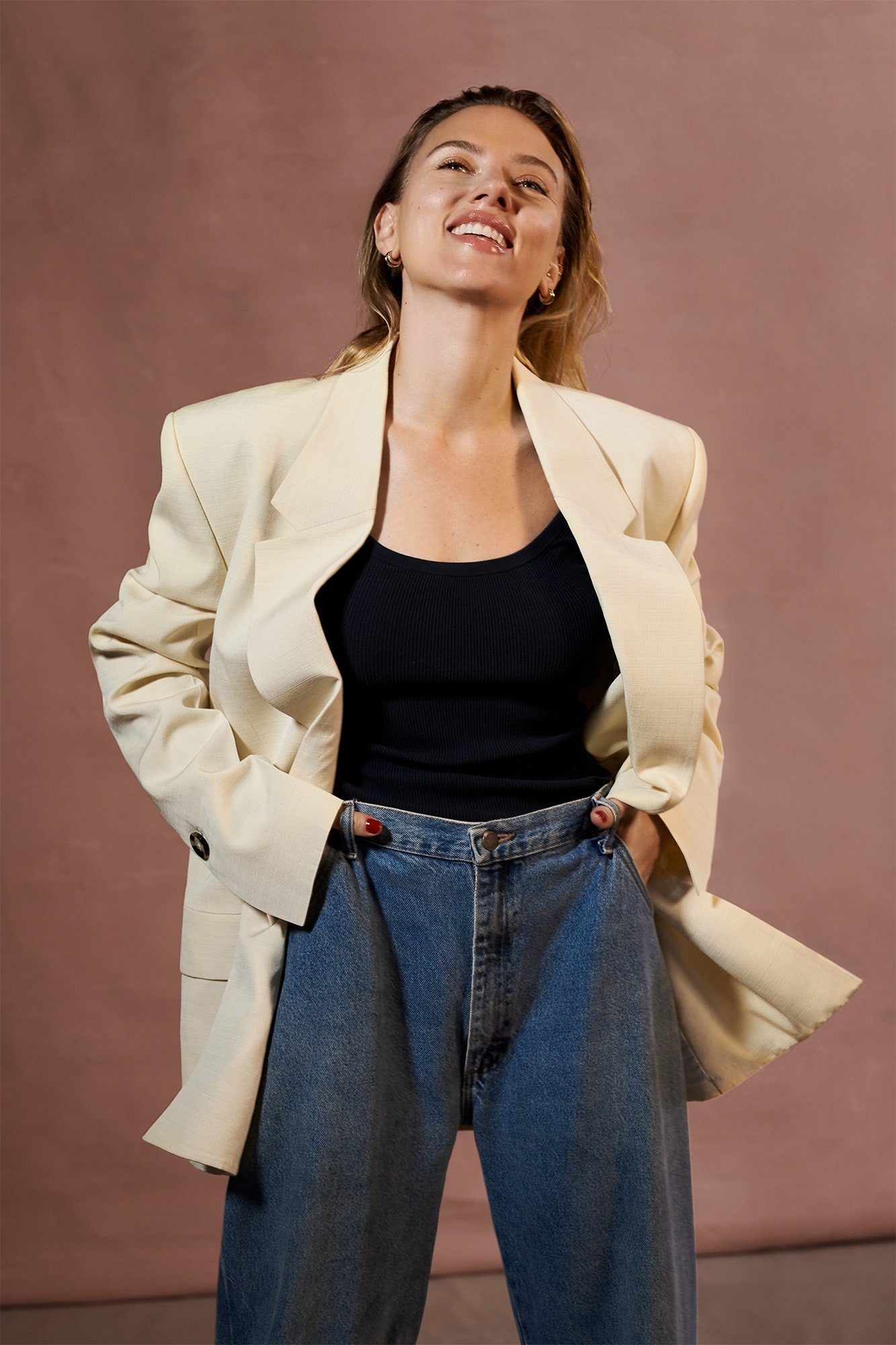 All of it is depicted, with remarkable deftness and empathy, in granular detail: the toxic spiral formed in the vacuum at the end of a relationship (particularly when a child is involved); the ways two people, no matter how motivated, can suddenly find themselves sinking to the occasion; and how defense can somehow mutate into the most unsparing kind of attack. It is in the worst of this conflict that Baumbach finds a surprising amount of humor, in a triple master class from the three actors (Laura Dern, Alan Alda, Ray Liotta) playing contrasting lawyers, but it is in the claustrophobic one-on-one scenes between Johansson and Driver that Marriage Story is most special. There’s a new kind of power and low-key realism to what Johansson does here that augurs very well for the next phase of her career.
All of it is depicted, with remarkable deftness and empathy, in granular detail: the toxic spiral formed in the vacuum at the end of a relationship (particularly when a child is involved); the ways two people, no matter how motivated, can suddenly find themselves sinking to the occasion; and how defense can somehow mutate into the most unsparing kind of attack. It is in the worst of this conflict that Baumbach finds a surprising amount of humor, in a triple master class from the three actors (Laura Dern, Alan Alda, Ray Liotta) playing contrasting lawyers, but it is in the claustrophobic one-on-one scenes between Johansson and Driver that Marriage Story is most special. There’s a new kind of power and low-key realism to what Johansson does here that augurs very well for the next phase of her career.
Notwithstanding the different sources that she has discussed drawing upon, I ask Johansson how different she thinks her performance might have been if she hadn’t been through divorce herself.
“What would have been different,” she replies, “is if I hadn’t been a mom. That was actually more valuable to me than the experience of going through a divorce. Because I never actually went through the kind of divorce that’s portrayed in the film. Yes, of course, part of the film is about the system of divorce, or the business of divorce, and how ҒUCҜed up it is, but that was Noah’s experience more than mine. But the experience of being a mother was very helpful, and it was a great tool…. You know, understanding what it is to co-parent—that’s a very specific thing. It’s hard to raise a child with someone you’re no longer with. It’s hard. It’s not probably how it’s ‘supposed to be’—in quotes—or whatever…. But, you know, I think my ex and I do it as well as we can. You have to prioritize your child and not put yourself in the middle. It has its challenges.”
I put to her the common perception that after failed marriages, people divide into two camps—those who withdraw and those who are all the more determined to get it right next time—and that people probably imagine she is in the second category (given that she is now engaged to Saturday Night Live’s Colin Jost). And I ask her whether that’s an incredible simplification.
“Yeah, it’s simple,” she says, “but it’s not untrue. The idea of building a family, making a family, and having that work, I like that idea. I think that would be wonderful. I’ve always wanted that. I wanted that also in my marriage to my daughter’s father as well. It just wasn’t the right person. But I like that idea…. I mean, the first time I got married I was 23 years old.” Johansson’s first husband—who, like her second husband, she doesn’t mention by name—was Ryan Reynolds. “I didn’t really have an understanding of marriage,” she continues. “Maybe I kind of romanticized it, I think, in a way. It’s a different part of my life now. I feel like I’m in a place in my life, I feel I’m able to make more active choices. I’m more present, I think, than I’ve been before.”
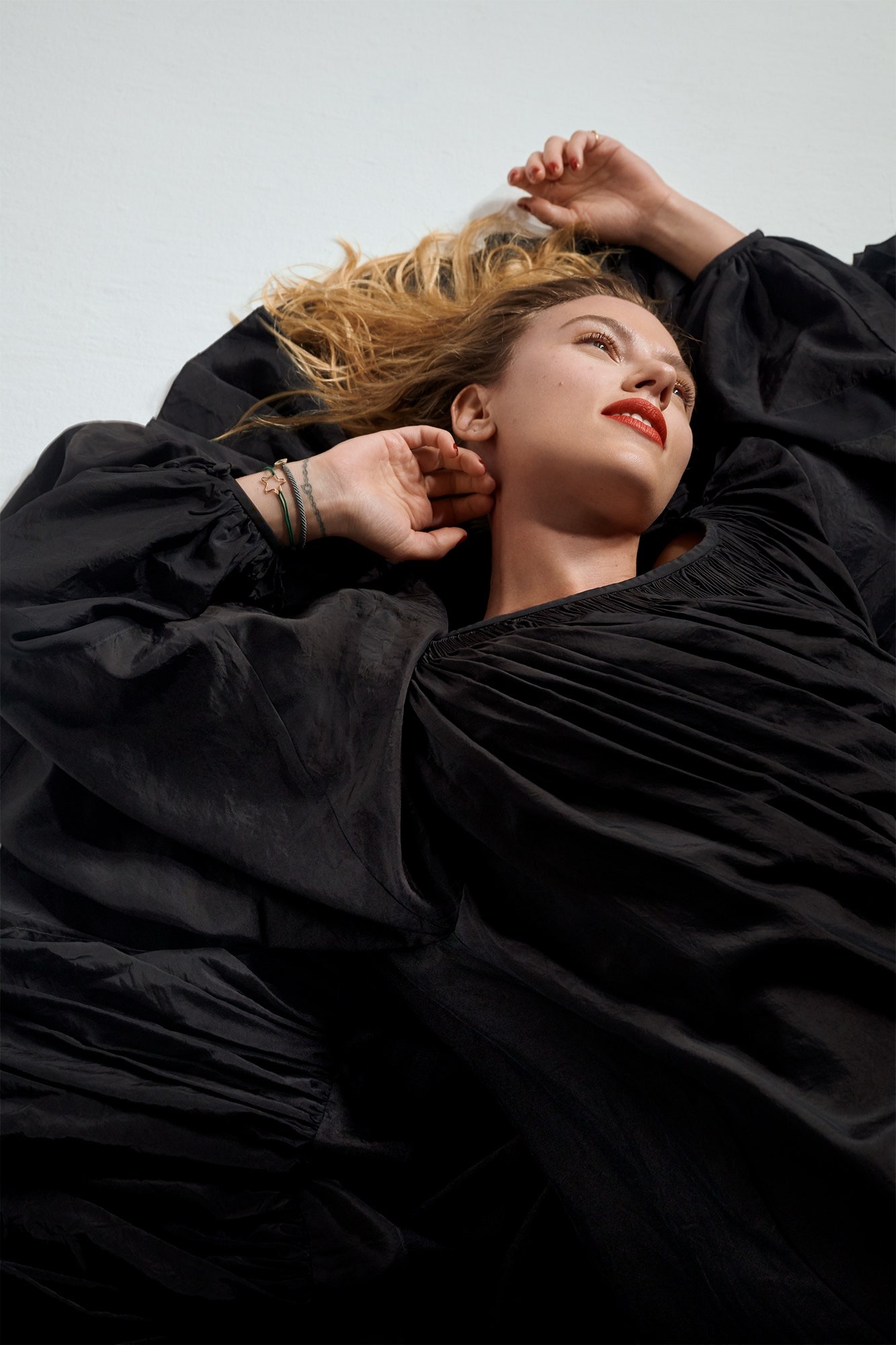
“When I sat down with her,” says Noah Baumbach, “the first thing she said to me was ‘I’m going through a divorce,’ and I thought, Oh sнιт. But it says so much about her that it was a reason to do the movie, not not to do the movie.” He praises Johansson’s “honesty and present-ness” and what he calls “this kind of fearless precision.”
“You want actors who are there to bring truth to the scenes, and only they can do it at the moment—she’s amazing at it,” he says. “I mean, everything is right there… I feel like I’m watching her movie a lot of times because it feels so personal, what she’s doing, even though they’re my lines.”
If Johansson’s career and life are a testament to her resoluteness and faith in following her instincts, those qualities have also led her, periodically, into some uneasy predicaments. The most recent came in an interview published in early September in the Hollywood Reporter when she was asked about Woody Allen, with whom she’s made three movies. Johansson made clear in that interview that she remains his friend and that she would work with him anytime. With regard to the accusations of Sєxual abuse from his daughter Dylan Farrow, which have increasingly led to his shunning, she said, “He maintains his innocence and I believe him.” When her thoughts were published, the response was loud, and some of it severe.
First, I ask Johansson about the general phenomenon whereby she has said things which have generated substantial amounts of fuss; her reply is a spirited one.
“I’m not a politician, and I can’t lie about the way I feel about things,” she says. “I don’t have that. It’s just not a part of my personality. I don’t want to have to edit myself, or temper what I think or say. I can’t live that way. It’s just not me. And also I think that when you have that kind of integrity, it’s going to probably rub people, some people, the wrong way. And that’s kind of par for the course, I guess.”
Then we discuss the specific recent Allen hullabaloo. Though she rues what she sees as inflammatory impulses behind journalists even raising the subject (then, and presumably perhaps also now), Johansson says that she was accurately quoted and that what she said remains her view.
“Even though there’s moments where I feel maybe more vulnerable because I’ve spoken my own opinion about something, my own truth and experience about it—and I know that it might be picked apart in some way, people might have a visceral reaction to it—I think it’s dangerous to temper how you represent yourself, because you’re afraid of that kind of response. That, to me, doesn’t seem very progressive at all. That seems scary.”
I ask her whether any of the criticisms, when she heard them, made her think that they had a point.
“I don’t know—I feel the way I feel about it,” she says. “It’s my experience. I don’t know any more than any other person knows. I only have a close proximity with Woody…he’s a friend of mine. But I have no other insight other than my relationship with him.”
We talk on about this, and I suggest that, as much as there is an argument for the validity of her voicing her own experience, one of the things that makes some people uncomfortable with an opinion like that being expressed is that she is also effectively saying, in 2019, to a woman who has spoken out: “I don’t believe you.”
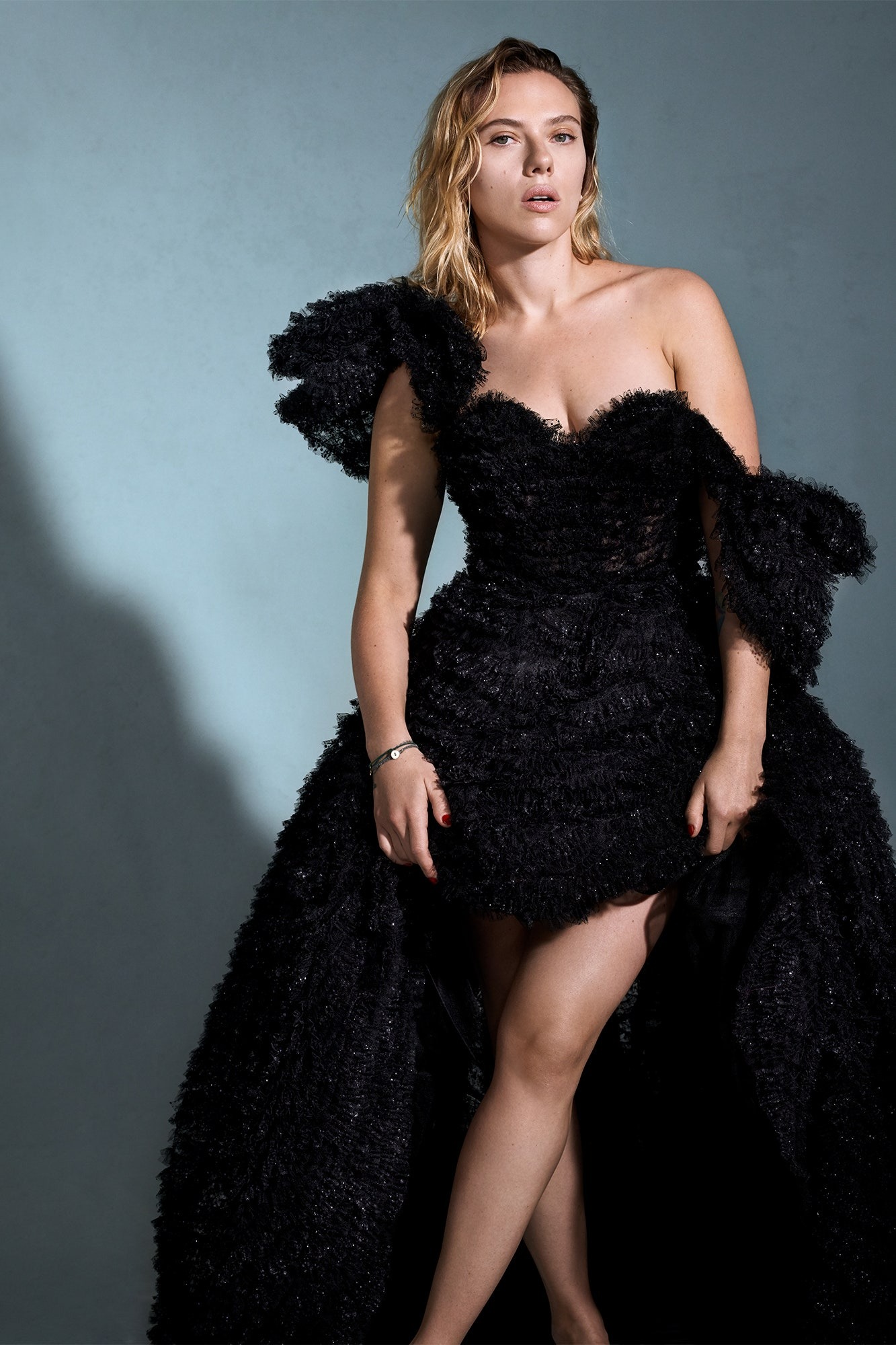
“Yeah,” she says, and that single word hangs there for a while. “I do understand how that is triggering for some people. But just because I believe my friend does not mean that I don’t support women, believe women. I think you have to take it on a case-by-case basis. You can’t have this blanket statement—I don’t believe that. But that’s my personal belief. That’s how I feel.”
Talking about all this is understandably awkward, and eventually Johansson says, “I think if I wanted to continue this conversation, it can be done personally with the people involved and not through statements to Vanity Fair. I don’t think that’s productive…it kind of feeds that sort of dragon.” Perhaps it’s instructive, by way of contrast, to look at an earlier tumult that erupted around Johansson, one in which her thinking evolved in light of the feedback she received. In July of last year, it was announced that she would play the lead in the movie Rub & Tug, based on the true story of a trans man, Dante “Tex” Gill, and his life in the world of mᴀssage parlors. Following protests that the role should have gone to a trans actor, Johansson put out a statement, a reʙuттal to those critics: “Tell them that they can be directed to Jeffrey Tambor, Jared Leto, and Felicity Huffman’s reps for comment.” (Those actors had recently been acclaimed and awarded for roles in which they portrayed trans characters.) Not long afterward, following a further and heightened backlash, Johansson withdrew from the role and issued a lengthier, far more conciliatory statement.
“I’m not a POLITICIAN and I CAN’T LIE about the way I feel.”
When I mention this chain of events, Johansson says that she got it wrong.
“In hindsight, I mishandled that situation. I was not sensitive, my initial reaction to it. I wasn’t totally aware of how the trans community felt about those three actors playing—and how they felt in general about cis actors playing—transgender people. I wasn’t aware of that conversation—I was uneducated. So I learned a lot through that process. I misjudged that…. It was a hard time. It was like a whirlwind. I felt terribly about it. To feel like you’re kind of tone-deaf to something is not a good feeling.”
I point out how there’s a danger that people will read that—about how horrible it is to feel tone-deaf—and refer it back to the conversation about Woody Allen….
“Yes, they will,” she says. “It feels like a snake eating its tail, doesn’t it?”
Johansson sounds weary by the end of this conversation, maybe anxious that as much as self-censorship doesn’t feel very progressive to her, trying to articulate honest thoughts about such difficult subjects may bring too much jeopardy. It’s a strange time when the same qualities we make a show of valuing in actors’ work—a sense of conviction, a willingness to risk, an independence of thought—can be viewed, the moment the camera is switched off, as personality faults. If part of what we ask actors to do is to help us to work the world out, it seems like she’s attempting just that.
The iconic and hugely popular role of Black Widow that has punctuated Johansson’s last decade, even as she enjoyed other triumphs in very different films, was one that she actively went looking for—at first unsuccessfully. It was watching the first Iron Man that piqued her interest. “I just loved it,” she says. “I’d never really seen anything like it before. It was not particularly that I was a fan of superhero stuff, or that genre, but it seemed groundbreaking. And I wanted to work with Marvel. It seemed like an exciting place to be.”
She says she took a general meeting with Marvel Studios president Kevin Feige to explore whether there might be a place for her within that universe, then met with director Jon Favreau when he was casting Black Widow for Iron Man 2.
“I loved him,” she remembers.
Eventually the call came. They had chosen someone else.
“I was visiting my husband at the time at work,” she says, referring to Reynolds. “I remember being in a random H๏τel somewhere. And I got that call and I was so, so disappointed. And then that was it. You know, life went on. I mean, I’ve certainly had enough experience of rejection.”
Emily Blunt had been chosen for the role, but a few weeks later, she had to decline due to scheduling problems. The part was Johansson’s after all.
“I’m not one to hold a grudge or anything,” she says. “I was super excited about it. And I met with Jon again, and we had a funny conversation about how he had not cast me. But I was excited. I was so stoked.”
It’s hard now to remember how uncertain the success of these films was. “When we went to shoot the first Avengers, I don’t think any of the actors knew if it was going to work,” Johansson says, pointing out that, historically, movies in which different franchises crossed over often hadn’t worked. But this did, building to the Infinity War/Endgame crescendo. Johansson said that she found out her character was destined to die just before the Infinity War script arrived. “Kevin Feige called me, as was kind of normal, just to discuss whatever the script was and what was going on. But I think he called me to tell me that. I was surprised, but I also kind of wasn’t surprised at the same time.” She says that the news didn’t jar her: “I think we all knew there were going to be some big losses.”
At that time, she says, a Black Widow movie had been talked about in theory, but not in earnest, and she certainly wasn’t banking on it. “I never counted on that film really happening,” she says. “I never count on anything happening until I’m actually standing at the craft service table.”
I ask her what she wanted the Black Widow movie to be, and what she didn’t want it to be.
“I did not want it to be an origin story,” she says. “I did not want it to be an espionage story. I didn’t want it to feel superficial at all. I only wanted to do it if it actually fit where I was with that character. I had spent such a long time peeling those layers away—I felt that unless we got to something deep, then there was no reason to make it. Because I did my job in Endgame, and actually felt satisfied with that. I would have been happy to let that be it. So there had to be a reason to do it other than just to milk something.”
Recently she referred to her hope that the movie might “elevate the genre.” “That’s my goal,” she says to me, and explains further: “The film talks about a lot of tough stuff. It deals with a lot of trauma and pain. And I hope this film is empowering for people because I think Natasha is a very empowering person, and an inspiring person in a lot of ways. She has overcome so much, and she’s brave. And so by elevating the genre I mean I hope that it can be both explosive and dynamic and have all that great fun stuff that goes with the genre, but I hope that we can also talk about, you know, self-doubt and insecurity and shame and disappointment and regret and all that stuff too. It has many different things, it’s not just that. But there’s a lot of deep stuff, I think, that drives it.”
At the end of this speech, I say to her that she makes the movie sound like it’ll be really good, but once more Johansson is not completely comfortable with such thoughts.
“Back to the shoe dropping…” she says.
There’s little sign of anything like that happening soon. In fact, there’s a whole other way in which today’s Scarlett Johansson has been succeeding. I ask her how it feels to be constantly referred to as “the world’s highest-paid actress.”
“I don’t know,” she says. “I guess it feels like a kind of funny fact. When you say it, it sounds unbelievable to me.” She laughs. “Like it’s not true.”
And yet, I point out, it probably is.
“Yeah, perhaps it’s true. It’s funny for that to be a descriptive point.”
But surely, I prompt, it’s not a bad thing?
“Once you HAVE A KID I think you have to EMBRACE THE UNKNOWN.”
“It’s certainly not a bad thing—it’s a wonderful thing!” Another laugh. “It’s wonderful, because it also affords me the ability to not feel like I have to work all the time. I can take time. Not to take a job just because I need to support myself, which basically every single person in most every industry has to do. I mean, I know what that’s like. So it’s great to have that—it’s a big, big luxury.”
Johansson closes the lid on a fruit salad she has been picking away at while she talked and stands up. It’s getting late and she must get back to her daughter, rejoin the rich unpredictability of real life. “Once you have a kid, I think you have to embrace the unknown,” she says. “Because everything is out of your control, and if you try to control it, you’ll lose your mind.”
Here, finally, are three moments, each relating to her new movies, that may offer a little further insight into who and how Johansson is.
The first involves shoelaces.
One shared thread between the very different Marriage Story and Jojo Rabbit that Johansson herself has noted is that they are the first two movies in her career in which she has truly played a parent. But there is another far more specific commonality in the two movies: They both include key scenes in which Johansson ties someone else’s shoes.
“That is so weird, totally weird,” she acknowledges. “One of those cosmic things.” Johansson says that when she filmed the second of these—Jojo Rabbit’s—the echo pᴀssed her by. “Totally forgot,” she says. “Completely didn’t see the connection.” To someone who hasn’t seen either movie, that might say something about coincidences and about her singular immersion in each role. To someone who has, it may also remind you just how powerful and heartbreaking an actor’s simple gesture can be.
The second is a conversation with Roman Griffin Davis.
Davis is the 12-year-old who plays the тιтle role in Jojo Rabbit, and this is how he describes Johansson, the woman who plays his mother:
“She really helped me. She could tell that I was new and scared. She made it fun on set, so I didn’t feel like I was working all the time. She’s a mother, but she was also a child actress, and she never made me feel less-than. She’s got this great positivity, and a very charismatic mind.”
The third concerns fluff.
As Johansson and I are discussing Marriage Story, I mention to her, approvingly, how emotionally brutal the movie is. Her response is revealing of her views on the film, but perhaps also, in a more general way, it is revealing of how the Scarlett Johansson of today wishes to navigate her way forward in the world.
“Yeah, it is,” she agrees. “It’s brutal. Which is also so delicious. You know what I mean? The brutality of it, that’s the rich stuff. That’s the good stuff. That’s the ugly, embarrᴀssing stuff. That’s the stuff I’m fascinated by. It’s all that juicy stuff, because that stuff is powerful and it’s meaningful. I’m not in it for the fluff. I don’t care about the fluff.”



